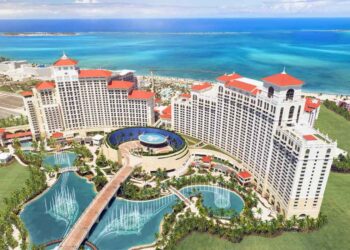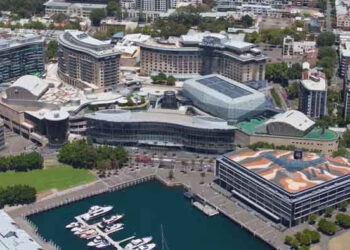In Dubai, local people get the best-paid jobs and migrants are imported to do the low paid ones. In Macau it’s generally the other way round.
The exception in Macau is the job of casino dealer. That’s reserved for Macau permanent residents. The problem is this creates both a disincentive for local people to continue education beyond the age of 18, and a glass ceiling whereby their job prospects peak at about the age of 20 and never move on. Not many dealers get promoted to casino management jobs because they don’t have the skills.
Macau could put pressure on employers to institute a short-term policy fix of promoting locals beyond their abilities, as has happened in Dubai. But in Dubai, the government—in common with other Gulf Cooperation Council states—now has educational policies to bridge the skills and education gap commonly found in developing economies. Dubai doesn’t assume the private sector will do the work of bridging that gap on its behalf. If Macau casino operators have a choice, they won’t employ under skilled locals for fear of reducing efficiency and productivity. No rational employer would.
Macau’s first chief executive, Edmund Ho, suggested during his second term the idea of raising the casino entry age to 21, thus creating an immediate incentive for locals to attend tertiary or higher education. He added that those casino workers under 21 at the time a new law was enacted would be allowed to stay on. He was backed at the time by Dr Stanley Ho. Nobody could accuse Dr Ho of being a ‘here today gone tomorrow’ kind of capitalist.
Locals can join the police force at the age of 18, so some fretted that could create a bizarre situation whereby police wouldn’t be able to enter a casino on official duty. That’s clearly a red herring. Dispensations could be made for public security personnel on official duty. Getting more people into tertiary and higher education is a question of political will, not technicalities.
The Monetary Authority of Macao announced it had foreign exchange reserves of MOP163.7 billion (USD20.42 billion) at the end of June 2010. If Macau can afford to spend USD1 billion on a light rail system to move tourists around, it can certainly afford to pay its young people educational support grants. That would allow students to stay in education beyond 18 without their choice having a short term negative impact on their family’s income. And if there aren’t enough places at local educational institutions, then they should be paid to attend courses in Hong Kong or the Chinese mainland. A condition of the support grants could be that the students must return to Macau after graduation, thus preventing a brain drain.
Educational support grants may be the only answer in the short term. With two new casino resorts due to open on Cotai between 2011 and 2012-13 requiring up to 22,000 new workers, there’s virtually no chance of the casino entry age being raised before then for fear of leaving a chronic shortage of already scarce local staff.
The time may have come, however, when Macau’s lawmakers need to rethink the policy of reserving casino dealing jobs for locals. In theory, it’s a good idea to allow the locals to benefit from the casino boom by reserving for them some of the highest paid entry level jobs. In practice, it’s in danger of creating the richest third world society on the planet, with Macau permanent residents permanently at the bottom of the educational achievement ladder, and businesses left with little choice but to ask to import more highly skilled staff.






























